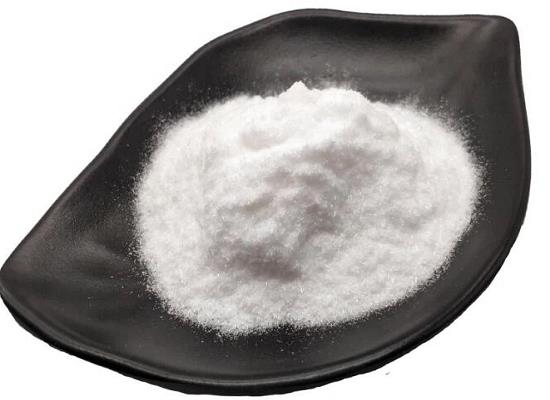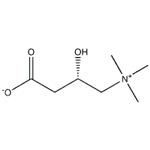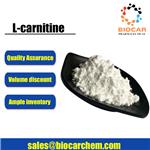L-carnitine: Dietary Sources and Endogenous Synthesis
Nov 4,2024
Carnitine, also known as L-carnitine and vitamin BT, is an amino acid that promotes the conversion of fat into energy. L-carnitine mainly comes from animal diets, red meat is the main source of L-carnitine, and plant diets contain very little. Different types of daily diets contain 5-100 mg of L-carnitine, but the average person only consumes 50 mg of L-carnitine from their diet every day, and vegetarians consume even less. Since taking L-carnitine preparations can reduce body fat and weight without reducing water and muscle, and can also delay exercise fatigue, it is deeply loved by fitness enthusiasts and obese people.

Figure 1. L-carnitine
Uses
(I) Rapid fat loss. L-carnitine is a key substance in the process of fat metabolism. It can promote the oxidation and decomposition of fatty acids into mitochondria. It can be said that L-carnitine is a carrier for transporting fatty acids. Studies have found that in long-term, high-intensity exercise, L-carnitine can increase the oxidation rate of fat, reduce the consumption of glycogen, and delay the occurrence of fatigue. Studies have shown that aerobic training after supplementing with L-carnitine has the most obvious fat-reducing effect.
(II) Promote fatigue recovery. L-carnitine can promote the activity of pyruvate dehydrogenase in cells, thereby promoting the oxidation and utilization of glucose, which is beneficial to delay the occurrence of fatigue during exercise. At the same time, a large amount of lactic acid is produced during human exercise. L-carnitine can promote the decomposition of lactic acid, enhance the body's energy synthesis, accelerate the excretion of waste in the body, and play an anti-fatigue role. In addition, L-carnitine is also involved in multiple metabolic links in the human body, and plays an important role in improving the body's immunity, protecting the stability of cell membranes, and improving exercise endurance.
(III) Protect cardiovascular system. L-carnitine is extremely important for the health of myocardial cells. Supplementing with sufficient L-carnitine can improve the heart function of patients with congestive heart disease, minimize the damage after a heart attack, reduce the pain of angina pectoris, improve arrhythmias, and do not affect blood pressure.
(IV) Eliminate fatty liver. The liver is an important metabolic organ for lipids and fats. In addition to eating too much fat can cause fatty liver, when the body lacks L-carnitine, it will cause long-chain fatty acid oxidation disorders, and will also cause excessive accumulation of liver fat, forming fatty liver. Increasing the intake of L-carnitine can regulate fat metabolism, promote fat oxidation, and fundamentally eliminate excess or accumulated fat in the body or organs.
Contraindications
L-carnitine has suitable people and contraindications for use. Not all types of obese people can expect it. For example, patients with liver disease and kidney disease should be cautious when taking L-carnitine, because it promotes fat metabolism and may increase the burden on the kidneys and liver. Generally speaking, the following groups are not recommended to take L-carnitine: menstrual women, patients with liver disease, kidney disease, hypertension, heart disease, pregnant and lactating women, children and adolescents, and extremely weak people.
In addition, although L-carnitine is said to have no side effects, some people still experience fever, sweating, thirst, dizziness, insomnia and other reactions after taking it, so it must be taken in moderation. If you feel uncomfortable, you should stop taking it immediately. Also avoid taking it before going to bed at night, because it may make it difficult for people to fall asleep.
- Related articles
- Related Qustion
- Different properties of L-carnitine Apr 13, 2022
L-carnitine, also known as L-carnitine and vitamin BT, the chemical formula is c7h15no3, the chemical name is (R) - 3-carboxyl-2-hydroxy-n
L-carnitine
541-15-1You may like
- L-carnitine
-

- 2025-05-25
- CAS:541-15-1
- Min. Order:
- Purity: 0.99
- Supply Ability:
- L-carnitine
-

- $0.00 / 1kg
- 2025-05-23
- CAS:541-15-1
- Min. Order: 1kg
- Purity: 0.99
- Supply Ability: 1000kg
- L-carnitine
-

- $0.00 / 1kg
- 2025-05-23
- CAS:541-15-1
- Min. Order: 1kg
- Purity: 99%
- Supply Ability: 8000






